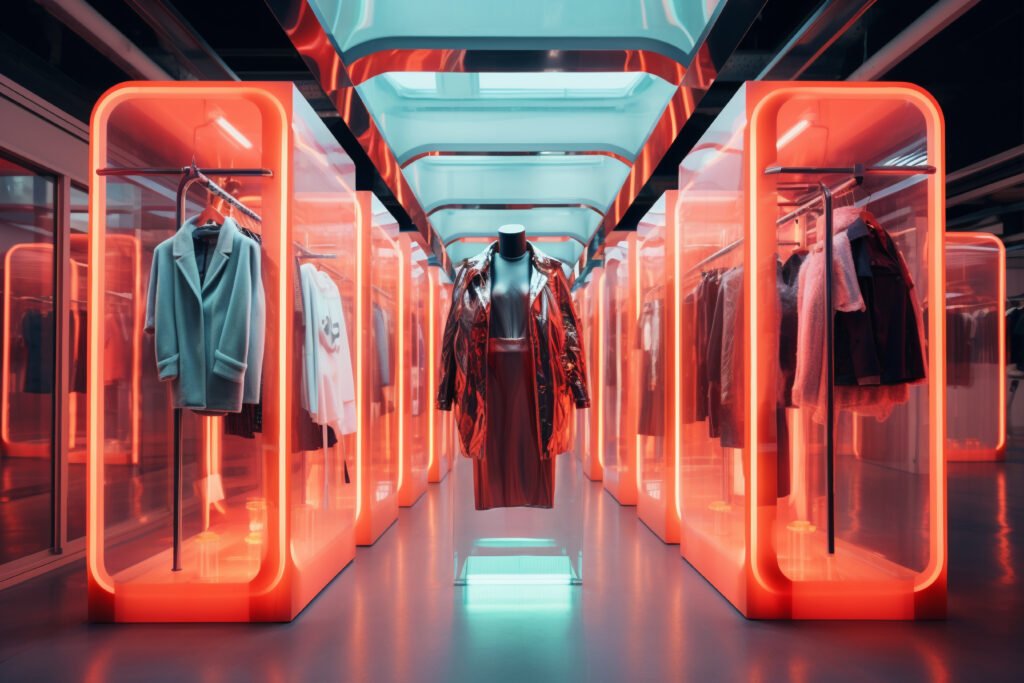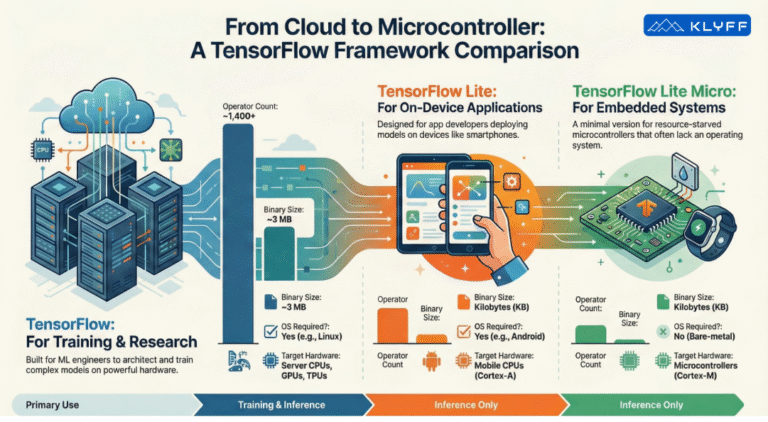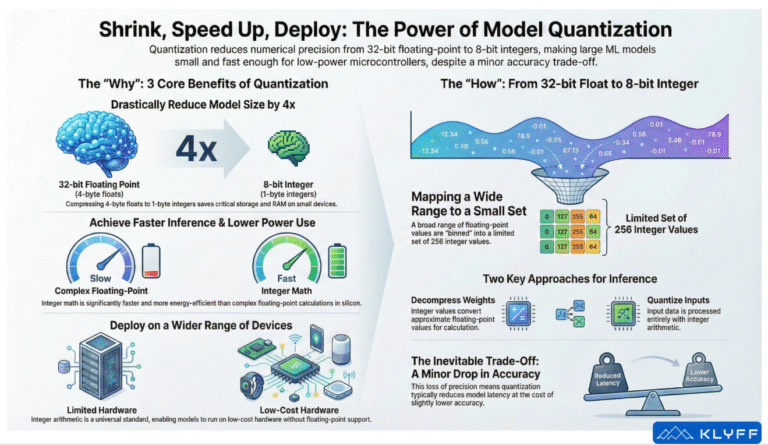
In a world where consumer expectations are evolving faster than ever, the retail industry is at a crossroads. The traditional brick-and-mortar model, once the undisputed king, is now challenged by the convenience of e-commerce and the demand for personalized, frictionless experiences. For Chief Experience Officers (CXOs) and business leaders, the question is no longer if they should embrace technology, but how they can leverage it to create a competitive advantage.
The answer lies in smart retail solutions, and as Klyff—a solid Edge AI solutions partner—we believe this is not just an upgrade; it is the fundamental future of the industry. By integrating the Internet of Things (IoT) and Edge AI, retailers can transform their physical stores into intelligent, data-driven ecosystems that rival the personalization and efficiency of their digital counterparts.
The Unmistakable Shift: The Stats Tell the Story
The market is already speaking. The global smart retail market, valued at approximately $43.13 billion in 2024, is projected to soar to a staggering $450.69 billion by 2033, with a Compound Annual Growth Rate (CAGR) of 30.3%. This explosive growth is not an anomaly; it’s a clear signal that smart technology is becoming a non-negotiable part of the retail business model.
Consumers are also driving this change. An industry survey found that in 2024, 71% of shoppers expected brands to understand their purchasing behaviors, and 77% were more inclined to buy with suitable product suggestions. This demand for hyper-personalization is no longer a “nice-to-have”; it’s a “must-have” for retaining customers in a competitive landscape.
Beyond the Hype: The Tangible Benefits of Smart Retail
Smart retail is more than just a buzzword; it’s a suite of solutions that delivers measurable value across the entire retail value chain. By leveraging technologies like IoT sensors, computer vision, and machine learning, retailers can achieve four key benefits:
- Transforming the Customer Experience: The modern consumer wants a seamless journey, whether they are shopping online or in-store. Smart solutions bridge this gap.
- Personalization at Scale: Klyff’s platform, with its ability to deploy AI/ML models directly on edge devices, allows retailers to deliver real-time, personalized experiences. Imagine a customer walking into a store and receiving a personalized push notification with a discount on a product they’ve been browsing online. This level of curated interaction makes the customer feel valued and understood.
- Frictionless Shopping: Long queues and frustrating checkout processes are a primary source of customer dissatisfaction. Automated checkout solutions, using technologies like RFID and computer vision, eliminate these pain points. The checkout journey becomes effortless, with shoppers simply picking up their items and walking out, and the transaction is automatically processed. This frictionless experience, a hallmark of Amazon’s Just Walk Out technology, is becoming the new standard.
- Augmented and Immersive Experiences: Smart mirrors, virtual try-on apps, and interactive displays are turning stores into “retail-tainment” hubs. These technologies not only engage the customer but also provide valuable data on product interest and engagement. For example, a campaign using virtual try-on technology led to 86% of customers scanning their selfies and a significant percentage signing up for marketing emails.
- Optimizing Operations and Driving Efficiency: The greatest savings in retail often come from streamlining what happens behind the scenes.
- Smarter Inventory Management: Out-of-stock items are a major cause of lost sales and customer frustration. Smart shelves, equipped with weight sensors or RFID tags, provide real-time inventory tracking, ensuring that products are always available. This automated system can trigger reorders and alert staff, reducing the risk of overstocking or stockouts. This precision can lead to a 10-14% improvement in store inventory turns.
- Enhanced Loss Prevention: Shoplifting and shrinkage are significant drains on profitability. AI-powered surveillance and analytics can detect suspicious behavior patterns in real-time, alerting staff and preventing losses. The Council on Criminal Justice found that shoplifting rates escalated significantly in major cities, making sophisticated loss prevention technology a crucial investment for profitability.
- Data-Driven Decision Making: With a Klyff-like platform, every device becomes a data point. Retailers can collect real-time data on customer foot traffic, dwell times in specific aisles, and product interactions. This information provides invaluable insights that can be used to optimize store layouts, staffing levels, and merchandising strategies. For example, by analyzing heat maps of customer movement, a retailer can place popular items in high-traffic areas or rearrange a store to improve customer flow.
- Building an Agile and Resilient Supply Chain: In an era of unpredictable supply chain disruptions, visibility and agility are paramount.
- Real-Time Asset Tracking: IoT sensors on pallets, packages, and even shopping carts provide end-to-end visibility of goods. Retailers can monitor the location and condition of products as they move through the supply chain, from the warehouse to the store floor.
- Predictive Analytics: By analyzing data from sensors and historical sales patterns, retailers can more accurately predict demand. This allows for proactive adjustments, preventing over-ordering or shortages. This level of predictive capability is a significant competitive advantage.
- Strengthening Security and Sustainability: Smart retail solutions also contribute to a more secure and environmentally conscious operation.
- Enhanced Security: The same AI-powered surveillance systems used for loss prevention also enhance overall store security, creating a safer environment for both customers and employees.
- Energy Efficiency: Smart solutions can automate the management of utilities like lighting and HVAC, reducing energy consumption and lowering operational costs. This not only benefits the bottom line but also contributes to a retailer’s sustainability goals.
Klyff: Your Partner in the Retail Revolution
At Klyff, we understand that this transformation is a journey, not a destination. Our intelligent IoT platform is built to be your partner, providing the foundation for a future-proof retail strategy. We empower businesses to go beyond simply collecting data to actually acting on it in real-time. Our Edge AI solutions enable:
- Real-time Analytics: Our platform allows for immediate processing of data on the device itself, reducing latency and ensuring that insights are actionable in the moment.
- Scalable Device Management: We provide the tools to manage your entire IoT ecosystem, from initial provisioning to ongoing monitoring and maintenance, ensuring your smart solutions are always running at peak performance.
- Customization and Integration: We recognize that every retailer is unique. Our platform is designed to be flexible and to integrate seamlessly with your existing infrastructure, allowing you to build the smart retail solution that is right for your business.
The future of retail is smart, connected, and data-driven. It’s about moving from a transactional relationship with customers to a truly personalized and immersive one. By embracing these solutions, CXOs can unlock new revenue streams, optimize operations, and create the kind of shopping experiences that will not only attract but also retain the next generation of consumers.



